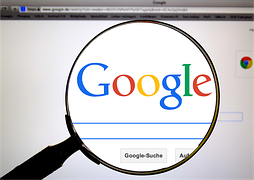The New SEO Rules of Google
SEO (Search Engine Optimization) is the process of making a website rank as high as possible on a search engine, such as Google, Yahoo, or Bing. SEO is considered to be one of the most important elements of any digital marketing strategy because most contemporary consumers use a search engine in order to find goods and services over the web, and the higher a website ranks, i.e., the closer it is to the top of the first page that a person sees, the greater its chances are of attracting traffic.
And Google, in particular, has been the 800 pound gorilla in the room that has set the rules that companies must follow, in order for their websites to rank as high as they can.
But over the years, Google’s rules keep changing, so business owners need to keep abreast of the constantly shifting SEO landscape in order to know how to drive as much traffic as possible from search engines. This year, new rules give businesses an opportunity to fine-tune and re-evaluate their SEO efforts, or risk losing organic traffic, or even having their websites removed from search engine results, altogether, for not abiding by Google’s new guidelines.
Google’s biggest adjustment this year is its announcement that it will rank a site differently if it isn’t “mobile-friendly.” The rate of use of mobile devices has grown tremendously over the past few years. More and more people are now browsing websites on mobile devices, which means they need to have an experience that can be loaded clearly on them. This means that a business must either create a whole new mobile site with a separate domain for mobile users; or utilize “dynamic serving,” which is a technique that detects what device a site visitor is using and then redirects them at the server level; or employ “responsive design,” which determines the resolution of the screen on which a page is being viewed using media queries, then adjusts the size and layout of the page appropriately.
Long-form content will continue to matter strongly in 2015. The length of a post really does help when it comes to how well a website ranks. Most important, however, is that content be helpful, educational and/or entertaining, and provide verifiable value to users.
This year, content will need to be shared as much as possible on social media platforms, such as Facebook and Twitter, in order to increase the odds of getting natural links due to more exposure. A balanced, back-link profile will still be essential, as well; relevant, fresh, and authoritative links always help move a business up in search engine rankings. Also, according to Google, site speed will play a larger role, this year, in mobile and desktop rankings.
It’s not always easy to keep up with the changes in SEO best practices, but if a business wants to strengthen its brand in 2015, it would be wise to understand and adhere to Google’s newest rules.
https://www.youtube.com/watch?v=Zati-En69TY
 1-844-47-Click (1-844-472-5425)
1-844-47-Click (1-844-472-5425)


